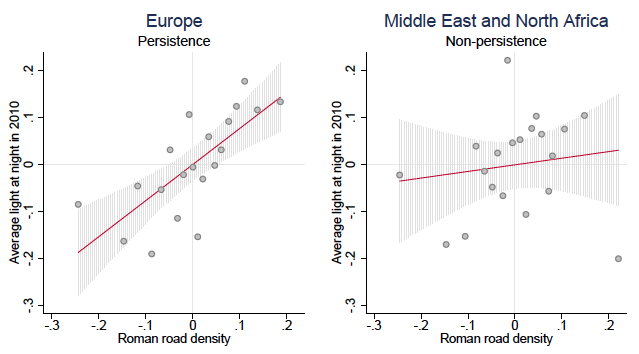|
I've heard some historians say that Norway's supposed poverty before the oil has been greatly exaggerated. It was rich in natural resources and while not exactly El Dorado people were doing well compared to many other countries at the time.
|
|
|
|

|
| # ? May 16, 2024 03:07 |
|
They've long been exporting lumber - Norwegian pine for the Royal Navy was a thing for a long time, and lesser lumber exports aswell. They've obviously always had fishing, and iron mines in the far north. It's more Norway never really had the population density or urbanization for much industry, so they've mostly been a resource extraction economy which isn't how you become super-rich before oil.
|
|
|
|
|
Nothingtoseehere posted:They've long been exporting lumber - Norwegian pine for the Royal Navy was a thing for a long time, and lesser lumber exports aswell. They've obviously always had fishing, and iron mines in the far north. It's more Norway never really had the population density or urbanization for much industry, so they've mostly been a resource extraction economy which isn't how you become super-rich before oil. Cod was a very important export for a long time. Norway's supposed poverty is something that occasionally gets exaggerated for political reasons, the reason namely being arguments against the Nordic welfare state, which tend to say that only oil wealth made it possible. Of course, those arguments ignore the fact that the welfare state in Norway preceeds the oil wealth.
|
|
|
|
feedmegin posted:Hence the 'etc', the place wasn't rich after the war either. Again, there's decades between "after the war" and the point where you can reasonably attribute any significant part of Norway's economy to oil. Norway's per capita GDP in 1960 was already in line with other western European nations. 
|
|
|
|
EricBauman posted:And apart from ignoring the areas without roads that did get wealthy, you also have to take into account the areas that did get roads that have nothing going for them today, even in Western Europe. It kind of sounds like you are agreeing with hypothesis 1) from my previous post. This is hard to sustain, because the relationship is obvious in the regression.  I find this response puzzling, because the study definitely does account for these differences, at least within Europe. If you look at Bordeaux on the maps I posted, the relationship between Roman roads and economic activity is visibly strong within the region, and a smaller resolution (the study used 1x1 latitude-longitude pixels, not very fine) would I think increase the amount of variation explained by road density. What I think is tripping some people up is the idea that there can be multiple interacting causes which, taken together, explain a complex variable like modern wealth. It's easy to strawman the article into saying this ONE thing explains EVERYTHING subsequent, but that's not what this study is trying to do. Imagine instead we took a random sample of 2,000 people, and gave 1,000 of them €10,000 to spend as they like. If we then came back in one or two years and asked them 'how much wealth do you have?' We might expect that, on average, those we gave money would have more wealth. However each individual within the groups would have wildly varying levels of wealth. Some who were given wealth would have gambled it away, while others who received nothing would have been already wealthy before the experiment, and would have stayed as such. You'd be foolish to conclude that giving people money doesn't make people wealthier just because the amount you gave away doesn't explain all the variation in subsequent wealth you see. You'd also be foolish to claim that a single small cash transfer would completely explain someone's subsequent wealth. Obviously this is much simpler than the relationship between Roman infrastructure and modern economic activity, but in principle, it's not radically different. Kemper Boyd posted:Cod was a very important export for a long time. I was looking at income statistics for European countries recently, and Norway was not particularly poor back in the early 1900s, globally high income, comparable to Ireland. However it was relatively poor in comparison to Denmark, which was quite wealthy at the time. I suspect relative comparison with ones neighbors can explain a lot of these feelings. http://www.nationmaster.com/country-info/stats/Economy/GDP-per-capita-in-1900 pre:GDP per capita in 1900: Rank Country Income 8 Denmark $2,902.00 13 Sweden $2,561.00 17 Norway $1,762.00
|
|
|
|
Squalid posted:I was looking at income statistics for European countries recently, and Norway was not particularly poor back in the early 1900s, globally high income, comparable to Ireland. However it was relatively poor in comparison to Denmark, which was quite wealthy at the time. I suspect relative comparison with ones neighbors can explain a lot of these feelings. Ummmmm. Early 1900s Ireland was also well known for being pretty impoverished. By western European standards yes, but does it really make sense to be comparing with eg Somalia?
|
|
|
|
feedmegin posted:Ummmmm. Early 1900s Ireland was also well known for being pretty impoverished. By western European standards yes, but does it really make sense to be comparing with eg Somalia? It wasn't particularly poor by Western European standards. It was pretty average all in all, depending how you measure wealth and when exactly you talking about. Better off than Italy and Spain, worse off than the Netherlands, about the same as Austria. You are doing the same thing the people saying Norway was recently very poor are doing, making a relative comparison . As the UK was remarkably wealthy in this period, Ireland looked comparatively poor. Whether an objective or relative comparison is most appropriate is going to be determined by what one needs to say. Probably the relative comparison is what explains what has become "well known." By comparison, people in the United States sometime talk about poverty in the State of Mississippi, and ways to address it. Of course, in terms of GDP PPP, Mississippians are slightly wealthier than the British, with an adjusted GDP per capita of $40,400 vs the UK’s $36,200. Mississippi's GVA PPP is about 75% of that for the entire US. This doesn't mean poverty is not a serious American problem in Mississippi. By contrast, according to the numbers on Wikipedia Ireland's GDP PPP was about 66% of that of the rest of the UK in 1913, and Norway's was 62% of Denmark's.
|
|
|
|
GDP per capita has very little to do with how much money people have. Anyway Norway had about a century with a rather high emigration rate, since while the people who were already making money were doing fine, there were low prospects for staying in the country and getting in on that. Particularly there were bad prospects for picking up good farmland among the rural youth. The emigrant ship trade of course capitalized on that to drive a wave of exodus of people who had reasonable amounts of funds from family out into the US and Canada where there was plenty of land available for them. This whole thing kinda let Norway ignore the pressures towards urbanization for a bit and of course didn't look that great internally or externally. So this builds a reputation of being a poor place, or at least a place where you've got better prospects elsewhere which is the same thing in the end. So consider: you look at Norway's GDP per capita in 1900 and say "this looks fine". But you do that without, say, the population being adjusted to count for the 600,000-750,000 people who had already emigrated to the Americas by that point in time, nor their kids who would otherwise have needed to be in Norway. And considering Norway's 1900 population is 2,242,995 people? That's a huge chunk of the population you're not dividing up the GDP among for your per capita figure, and they'd be likely not to have contributed as much to the GDP as a whole to make up for their size.
|
|
|
|
Related to nothing, I've just been really into Celtic history docs since I don't know dick about them and I found out about this dude(John Kenny) who plays the carnyx: https://www.youtube.com/watch?v=hVAWwWi0DbE it loving owns, would love to sack a city while it plays.
|
|
|
|
What the hell, are those intermittent downtuned-electric-guitar type sounds coming from the carnyx? Did the Celts invent doom metal? Also the dog's head has a tongue that wags while it plays, I assume (hope) it has some role in modulating the sound. That loving owns Guildencrantz fucked around with this message at 10:47 on Sep 7, 2018 |
|
|
|
Guildencrantz posted:What the hell, are those intermittent downtuned-electric-guitar type sounds coming from the carnyx? Did the Celts invent doom metal? I think it's particularly forceful playing, plus the acoustics, plus the microphone not necessarily being studio quality. Someone should tell too many zooz about this, their sax guy would probably be all for it. https://youtu.be/zSLsTf2TH-Y is the same guy, go to around 34 mins to get a better look/listen at playing, and around 36:30 to hear that guitar noise. He's got a lot of neat techniques that bring shitloads of different sounds out. FAUXTON fucked around with this message at 13:49 on Sep 7, 2018 |
|
|
|
Thats crazy - I dont see his hands moving at all so all the different noises are him using differing amounts of force when blowing into the thing? I know next to nothing about playing instruments though so maybe I am missing something...
|
|
|
|
AAAAA! Real Muenster posted:Thats crazy - I dont see his hands moving at all so all the different noises are him using differing amounts of force when blowing into the thing? I know next to nothing about playing instruments though so maybe I am missing something... It’s nothing special with the note modulation. A bugle is the modern equivalent. Actually a trombone size bugle would be but you get the idea.
|
|
|
|
You can change the pitch on any brass instrument by changing the shape of your lips. Adding valves/a slide/etc just gives you more control since you can change the length of the instrument as well. Big wet raspberry = low note, tight buzzy raspberry = high note
|
|
|
|
Oh yeah, here's a little better video from the guy explaining some of the aspects of it and what they might have been used for (besides war horns) https://www.youtube.com/watch?v=lVFGT2NX-YQ and this seems like a longer video of a talk he gives at a museum, but I haven't watched the whole thing: https://www.youtube.com/watch?v=zSLsTf2TH-Y I'm not a musician at all, but music history is really neat, especially all these extinct instruments that we aren't really sure how they were played or what they're 'supposed' to sound like.
|
|
|
|
Was at the Renaissance castle in Tübingen today, which houses the uni archeaology department, and they had a hugeass marble head of Augustus in the yard with a plaque how they found it in a river. My first thought was wow I did not realize those came in that size, my second thought was wow that is amazingly well-preserved, like small surface detail and poo poo, and then I noticed a plaque on the back of it that said that they actually had a guy make it and made up the story about how they found it. And that's how I got trolled by nerds.
|
|
|
|
What was their reasoning for the making up poo poo. Because thats kinda bad musuem design if the explantory plaque isnt like a mandatory read or super easy to spot.
|
|
|
|
Telsa Cola posted:What was their reasoning for the making up poo poo. Because thats kinda bad musuem design if the explantory plaque isnt like a mandatory read or super easy to spot. I can't remember the exact reasoning. This is it, although it's currently wearing a pair of comically large glasses:  The explanatory plaque has "Fake" as the title and is on the back of the head, the one visible on the side is the made up standard museum plaque text.
|
|
|
|
Ah yeah thats visible enough. I thought it was in a gallery or something which makes placement of those kinds of things difficult.
|
|
|
|
That angers me way less than that actual Roman bust that was found in a river in France a few years back that people claimed was a bust of Julius Caesar without any evidence and how all news outlets reported "Bust of Caesar Found!!"
|
|
|
|
Welcome to archeological news reporting.
|
|
|
|
Every couple of years some quack gets all the headlines for "discovering" the holy grail, but its literally always Petra.
|
|
|
|
Teriyaki Hairpiece posted:That angers me way less than that actual Roman bust that was found in a river in France a few years back that people claimed was a bust of Julius Caesar without any evidence and how all news outlets reported "Bust of Caesar Found!!" There's lots of busts of Julius Caesar extant. We know what he looked like, so it's not hard to identify one. If they were claiming it was a bust of Caesar, it's probably because it looked like him. The evidence is the bust itself.
|
|
|
|
I used to play trombone and I could make that same heavy metal distorted sound on lower resonant notes. It's just an emouchure thing.
|
|
|
|
Deteriorata posted:There's lots of busts of Julius Caesar extant. We know what he looked like, so it's not hard to identify one. If they were claiming it was a bust of Caesar, it's probably because it looked like him. The evidence is the bust itself. I don't think there are a lot of busts of Julius Caesar, actually. Needless to say this bust did not look like the few we have or the coins he's on at all. Actual historians were saying "this isn't a bust of him" but that didn't stop dozens upon dozens of news stories about a newly discovered bust of Caesar.
|
|
|
|
There's a great deal of debate about which, if any, of the busts traditionally identified as Caesar are actually him. There's never been one found that came labeled in some way as to completely, unambiguously be Caesar.
|
|
|
|
A bust of Caesar's cousin's dog's accountant isn't news, a bust of Caesar is
|
|
|
|
|
Hieronymous Alloy posted:A bust of Caesar's cousin's dog's accountant isn't news, a bust of Caesar is Actually I'd be interested
|
|
|
|
Grand Fromage posted:There's a great deal of debate about which, if any, of the busts traditionally identified as Caesar are actually him. There's never been one found that came labeled in some way as to completely, unambiguously be Caesar. How have they identified the most famous ones?
|
|
|
|
Squalid posted:How have they identified the most famous ones? The only unambiguous depictions of Caesar are from coins, so you try to match statues to coins. Obviously trying to compare a not terribly detailed coin portrait with a 3D bust is difficult. There are some classicists that argue we don't have any Caesar busts. I don't know the material well enough to say one way or the other on their arguments so I don't really have a position. It's just worth knowing that is a position that exists and they're not crazy. My inclination is that there were so many portrait busts of Caesar that we must have at least one real one, we manage to find them for plenty of less famous figures. If we have busts of people who had a damnatio memoriae we should have some of the guy who founded the first imperial dynasty. But it is interesting that Caesar may be the most well documented person in Roman history and yet we cannot say for sure we have a statue of him anywhere. Caveat: I am not huge into art history and my Roman sculpture class was a decade ago so I may be out of date on this.
|
|
|
|
CommonShore posted:I used to play trombone and I could make that same heavy metal distorted sound on lower resonant notes. It's just an emouchure thing. If I'm remembering playing correctly, I think it's got something to do with lifting the back half of your tongue up against the palate but also puffing your cheeks out and maybe closing your teeth in some, almost like making pissed donald duck noises into the mouthpiece
|
|
|
|
Well this story is irritating. http://www.eadt.co.uk/news/colchester-town-centre-roman-discovery-destroyed-1-5685488
|
|
|
|
Mr Enderby posted:Well this story is irritating. What the gently caress.
|
|
|
|
I get that budgets are tight and all, but has England not discovered the amazing technology of garden sheds? They're great at keeping things out of the rain. Not archival grade storage facilities to be sure, but better than leaving it out in the elements. I mean, here: https://www.lowes.com/pd/Arrow-Common-12-ft-x-31-ft-Interior-Dimensions-11-76-ft-x-30-875-ft-Vinyl-coated-Steel-Storage-Shed/3169207 I'm just a humble historian but if they're that broke I'd have been happy to fund a shed for them. I'm only half joking.
|
|
|
|
Lol "we cant restore it because authenticity".
|
|
|
|
If we can't restore it authentically, we might as well destroy it. That is obviously the only choice.
|
|
|
|
Welp, better blow up the entirety of downtown Rome then.
|
|
|
|
The 'we must destroy it intentionally because it will look bad if it gets destroyed unintentionally' is a surprisingly common mindset
|
|
|
|
I wonder how many of the greek and roman statues were painted. Historians used to believe none of them were. Now it seems like they believe many of them were. Wouldnt be surprised if they start to believe all of them were painted.
|
|
|
|

|
| # ? May 16, 2024 03:07 |
|
The evidence is that there were some unpainted ones but painting was the default for classical sculpture. It is sort of weird how much effort they went through to get nice marble and then just painted over it, but.  The evidence doesn't lie--you can detect the remnants of the paint particles on the statues. There were ones that were mixed too, like say the exposed skin/hair/whatnot were painted but the clothes weren't to leave the figure wearing a white toga. The evidence doesn't lie--you can detect the remnants of the paint particles on the statues. There were ones that were mixed too, like say the exposed skin/hair/whatnot were painted but the clothes weren't to leave the figure wearing a white toga.There were also plenty of statues wearing clothes, particularly gods. Some of those were designed only to be clothed. The exposed parts like the head and hands were well-made marble, but the clothed parts were made of brick or wood since nobody was going to see them.
|
|
|



















































